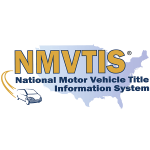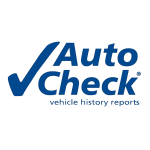Free Vehicle History Report: Know the Full Story Before You Buy
Check a car’s complete vehicle history instantly and at no cost.
A vehicle history report is your first line of defense against hidden problems. With VinCheckPro, you can get a free vehicle history report using either a VIN or license plate — no credit card, no hassle.
Discover critical details before you buy:
- Past accidents and damage
- Title status (salvage, flood, rebuilt)
- Odometer rollbacks
- Theft and recovery records
- Open recalls and safety issues
- Lien or loan status
Don’t risk buying a car without knowing its true background.
Run your free vehicle history report now and drive with confidence.
What is a Vehicle History Report?
A vehicle history report compiles a vehicle’s recorded background by analyzing its VIN or license plate against trusted databases—government, DMV, insurance, auctions, salvage yards, and more. It surfaces hidden details that a test-drive alone can’t show, helping you avoid costly surprises.
Key Sections You’ll Find:
- Title Information: Detects salvage, flood, rebuilt, or lemon-law titles
- Accidents & Damage: Includes insurance, police, and repair records
- Odometer Data: Highlights potential rollback or tampering
- Theft and Recovery Flags: Reveals if a vehicle was stolen or recovered
- Liens & Loans: Shows outstanding financial claims
- Recall Status: Checks for open recalls and defects
- Ownership History: Tracks number of owners and where it’s been registered
- Specifications: Provides engine, transmission, fuel type, seating, and more
See how our vehicle history report safeguards you: VIN Recall Lookup Tool
Why Rely on a Free Vehicle History Report?
For Buyers:
- Eliminate Risk: Identify hidden damage, odometer fraud, or salvage titles
- Negotiate Smarter: Use history data to gain leverage
- Verify Legitimacy: Ensure no undisclosed liens or theft issues
For Sellers:
- Build Trust: Share verified history to attract serious buyers
- Sell Faster: Provide confidence and reduce negotiation friction
For Dealers & Lenders:
- Due Diligence: Confirm title integrity and recall status
- Portability: Support financing decisions with full history transparency
Vehicle Lookup Tools
Common Used‑Car Scams Revealed
A detailed vehicle history report can protect you from:
- Salvage Title Fraud: Uncovers branded salvage or rebuilt histories
- Odometer Rollback: Shows mileage inconsistencies
- Title Washing Schemes: Flags multiple out-of-state titles
- Stolen Vehicle Concealment: Detects theft or recovery history
- Hidden Accidents or Lemon-Law Buybacks: Alerts you to issues smart buyers avoid
- Flood-Damage Hiding: Highlights prior water damage—critical in flood zones
Rental or Fleet Vehicle Masks: Exposes excessive prior use
How to Run a Free Vehicle History Report
- Navigate to the vehicle history lookup tool
- Enter the VIN or license plate and select the state
- Click Check This VIN / Plate
- Instantly view the free vehicle history report
- Download or share with your seller/dealer
Why VinCheckPro?
- 100% Free Reports — no sign-ups, no fees
- Government & Industry Data Sources — accurate and current
- Comprehensive Coverage — accidents, titles, ownership, recalls
- Trust-Building Tools — shareable and formatted for transparency
Don’t rely solely on price tags or vague seller claims. A free vehicle history report puts the truth in your hands.
Other Free Vehicle Report Sources You Can Trust
Looking to double-check with more resources? These official and commercial options also provide free vehicle history reports or partial data:
 |
National Highway Traffic Safety Administration (NHTSA): Use the NHTSA VIN lookup tool to check for open recalls, safety issues, and past complaints tied to a vehicle. It’s a great backup to confirm safety records. |
 |
National Motor Vehicle Title Information System (NMVTIS): NMVTIS provides reliable vehicle history lookup access via authorized resellers. You can find out about title brands, salvage history, and mileage inconsistencies. Some providers even offer basic reports for free. |
 |
AutoCheck Free VIN Check: AutoCheck (by Experian) offers a limited free vehicle report. It reveals past ownership changes, accident records, and possible risks. |
 |
Carfax: While most Carfax reports are paid, the myCarfax service shares some data for free—like service history and open recalls. Use it alongside VinCheckPro to verify repair timelines.. |
Get Started: Run Your Free Vehicle History Report Now
✅ No fees
✅ Covers accidents, title problems, recalls
✅ Great for Texas, California, and all 50 states